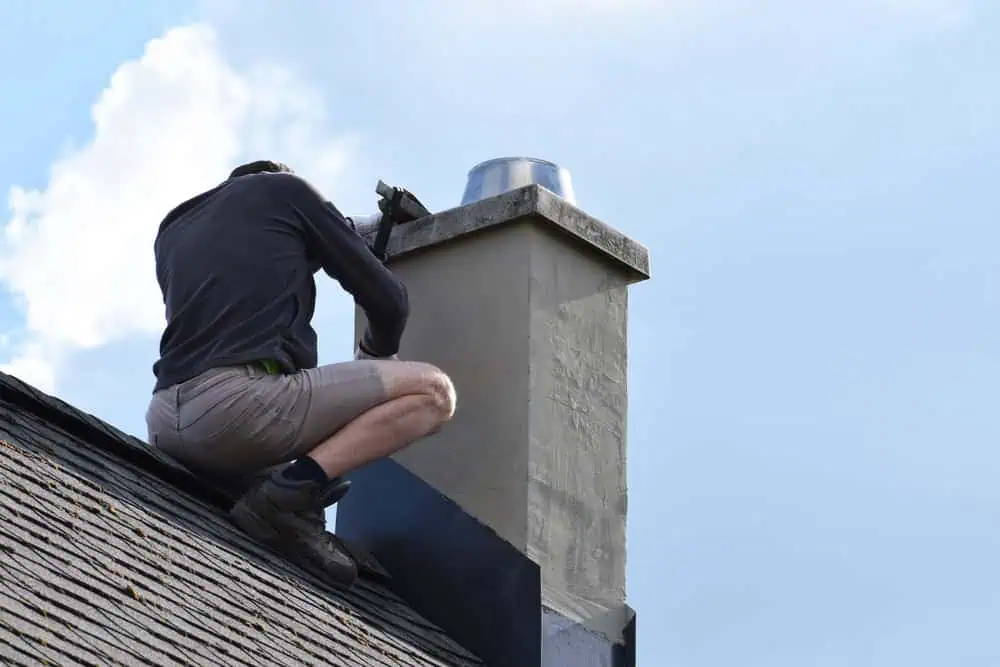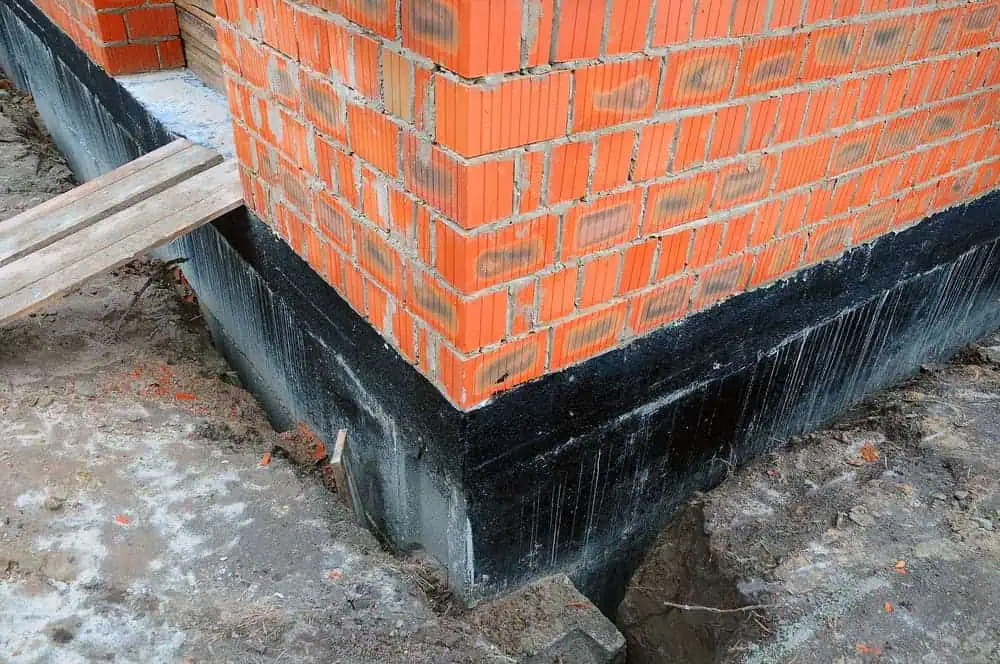Summary:
Why Massachusetts Winter Weather Destroys Unprotected Foundations
Massachusetts winters aren’t just cold—they’re destructive. The state’s 48-inch frost line means water freezes deep into the ground around your foundation. When temperatures fluctuate above and below freezing, that frozen water expands and contracts repeatedly.
This freeze-thaw cycle creates enormous pressure against foundation walls. Small cracks become bigger ones. Existing problems turn into major structural issues. The process happens slowly, but the damage compounds every winter until you’re facing expensive repairs.
Boston’s location near the harbor and Charles River makes moisture problems even worse. Underground streams that homeowners don’t know about can surface during heavy snowmelt, overwhelming foundations that weren’t designed with modern waterproofing techniques.
How Freeze-Thaw Cycles Crack Foundations and Create Water Entry Points
Water expands 9% when it freezes. That might not sound like much, but when it happens in soil around your foundation, the pressure can reach thousands of pounds per square foot. This force pushes against basement walls, creating new cracks or widening existing ones.
The real damage happens during the thaw. As ice melts, it leaves gaps in the soil where water can collect. This water finds its way into the cracks that formed during the freeze cycle, setting up the next round of damage. Each winter, the problem gets worse.
Suffolk County, MA and Middlesex County, MA properties are particularly vulnerable because of the region’s clay-rich soil. Clay holds moisture longer than sandy soil, which means it stays frozen longer and creates more sustained pressure against foundations. When it finally thaws, all that trapped water has to go somewhere.
Foundation waterproofing interrupts this cycle by creating a barrier that keeps water away from foundation walls. Even if cracks form, properly waterproofed foundations channel water away before it can penetrate into your basement. The investment in waterproofing now prevents the much larger expense of foundation repairs later.
Most homeowners don’t realize their foundation is failing until they see water in the basement. By then, the freeze-thaw damage has been accumulating for years. Professional waterproofing assessment can identify vulnerable areas before they become expensive problems, especially important given that foundation repair costs in Boston typically range from $3,000 to $31,300.
Spring Snowmelt and Basement Flooding: The Hidden Costs
Spring snowmelt poses one of the biggest threats to Massachusetts basements. When snow melts rapidly, it can oversaturate the soil around your foundation faster than natural drainage can handle. Poor exterior drainage or clogged downspouts make the situation worse by directing even more water toward your foundation.
The average water damage restoration cost ranges from $1,600 to $6,900, but basement flooding can push costs much higher. Class 3 water damage, where water saturates floors, walls, and potentially subflooring and insulation, can cost tens of thousands to repair properly. That doesn’t include the cost of replacing belongings, dealing with mold remediation, or temporary housing if the damage is severe.
Insurance doesn’t always cover basement flooding from snowmelt. Standard homeowner’s policies typically exclude flood damage, and even flood insurance has limitations. Many homeowners discover too late that their basement flooding isn’t covered, leaving them to pay repair costs out of pocket.
Foundation waterproofing prevents these costs by managing water before it enters your basement. Interior drainage systems like French drains direct water away from your foundation to prevent seepage. Sump pumps automatically remove water as it accumulates. Vapor barriers provide an additional layer of protection by preventing moisture from penetrating basement walls and floors.
The cost of professional waterproofing is almost always less than the cost of repairing water damage. More importantly, waterproofing protects your home’s value. Homes with a history of basement flooding are harder to sell and typically sell for less money. Proper waterproofing gives buyers confidence that they won’t inherit water problems.
Prevention also protects your health. Damp basements create perfect conditions for mold growth, which can trigger respiratory problems and other health issues. Black mold and other dangerous species can develop within 48 hours of water exposure, creating hazardous conditions that require professional remediation.
Professional Foundation Waterproofing Solutions That Work in New England
Not all waterproofing solutions work in Massachusetts’ harsh climate. Hardware store sealants and DIY approaches might provide temporary relief, but they don’t address the underlying pressure that causes water infiltration. Professional waterproofing systems are designed to handle the specific challenges of New England weather.
Effective foundation waterproofing combines multiple approaches. Exterior waterproofing creates a barrier on the outside of foundation walls. Interior drainage systems manage water that does penetrate. Sump pump systems provide active water removal. The combination creates redundant protection that works even when individual components face extreme stress.
We understand local soil conditions, drainage patterns, and building codes. We know which materials and techniques work best in Massachusetts’ freeze-thaw environment and can customize solutions for your specific property.
Interior vs Exterior Waterproofing: Which Approach Works Best
Both interior and exterior waterproofing have roles in protecting Massachusetts foundations, but the best approach depends on your specific situation. Exterior waterproofing prevents water from reaching foundation walls in the first place. Interior waterproofing manages water that does penetrate and directs it away from living spaces.
Exterior waterproofing involves excavating around the foundation to apply waterproof membranes and install drainage systems. This approach addresses the problem at its source but requires significant excavation work. It’s often the best choice for new construction or when foundation walls need major repairs anyway.
Interior waterproofing installs drainage systems inside the basement perimeter. French drains collect water that seeps through foundation walls and direct it to a sump pump for removal. This approach is less disruptive and typically less expensive than exterior work, making it popular for existing homes.
The most effective systems combine both approaches. Exterior waterproofing reduces the water load on your foundation. Interior systems provide backup protection and active water removal. Together, they create comprehensive protection that works in Massachusetts’ challenging climate.
Professional assessment determines which approach works best for your property. Factors include soil conditions, the age and condition of your foundation, existing drainage, and budget considerations. A qualified contractor can evaluate these factors and recommend the most effective solution for your specific situation.
Many Massachusetts contractors offer transferable lifetime warranties on their waterproofing systems. This warranty protection not only gives you confidence in the work but also adds value when you sell your home. Buyers appreciate knowing that basement water problems have been professionally addressed with guaranteed solutions.
Sump Pumps and Drainage Systems: Your First Line of Defense
Sump pumps provide active protection against basement flooding by automatically removing water as it accumulates. In Massachusetts, where spring snowmelt and heavy rains can overwhelm natural drainage, sump pumps often make the difference between a dry basement and a flooded one.
Modern sump pump systems include battery backup pumps that work even during power outages. Winter storms often cause power outages just when you need your sump pump most. Battery backup systems ensure continuous protection regardless of weather conditions. Some systems even include WiFi monitoring that alerts you to pump failures or power issues.
French drain systems work with sump pumps to collect and channel water away from your foundation. These interior drainage systems install along the basement perimeter, collecting water that seeps through foundation walls and directing it to the sump pump. The combination provides comprehensive water management that works in even the wettest conditions.
Proper installation is critical for these systems to work effectively. Drains must be properly sloped to ensure water flows toward the sump pit. Pumps must be sized correctly for your basement’s square footage and local water conditions. Backup systems need regular testing to ensure they’ll work when needed.
Maintenance keeps these systems working reliably. Sump pumps should be tested regularly, especially before spring snowmelt season. French drains may need occasional cleaning to remove debris that could block water flow. Professional maintenance programs ensure your systems work when you need them most.
The investment in professional sump pump and drainage systems typically pays for itself quickly. The average cost of these systems is far less than the cost of cleaning up after even one basement flood. More importantly, they provide ongoing protection that preserves your home’s value and your peace of mind through every Massachusetts winter.
Protecting Your Massachusetts Home Investment With Professional Waterproofing
Foundation waterproofing isn’t an expense—it’s an investment in protecting your home’s value and your family’s comfort. With 98% of basements experiencing water damage at some point, the question isn’t whether you’ll face water problems, but when. Professional waterproofing gives you control over that timing by preventing problems before they start.
Massachusetts winters will continue to challenge your foundation with freeze-thaw cycles, snowmelt, and harsh weather conditions. The homes that survive these challenges best are the ones with professional waterproofing systems designed for New England’s climate. These systems pay for themselves by preventing costly repairs and preserving property values.
Don’t wait until you see water in your basement to address foundation waterproofing. Early intervention costs less and provides better protection than emergency repairs after damage occurs. We have the experience and expertise to assess your foundation’s needs and recommend solutions that work in Suffolk County, MA and Middlesex County, MA conditions.



